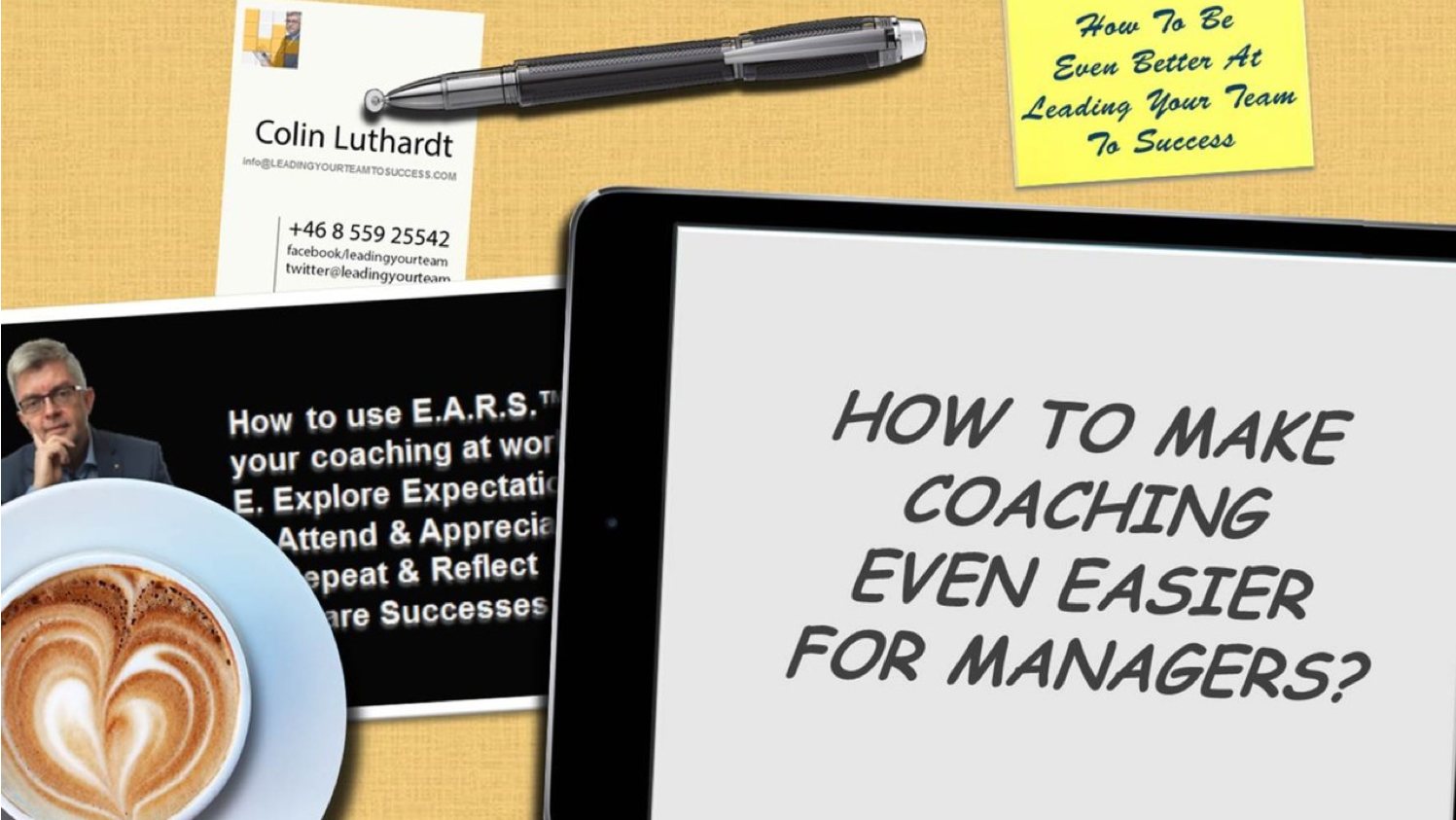
The Umbrella Manager
12/08/2019
Coaching starts with your EARS
29/08/2019Four Things that will boost your self-confidence, not only at work
So, you have just started work again after your summer break, you exchanged your “hello’s” and holiday experiences with your colleagues, and you have had your first meetings, and you made it until Friday.
A number of days at work have gone by and you start to realize that you feel like you have never been on holiday. The mountain of work from before the summer appears before you again, your goals hurt like stones in your shoes, you just wish that all the scheduled meetings in your calendar would feel as far away again as they did in July, and even the coffee from the office coffee machine tastes as dull as before you left.
What has happened to your feeling of being strong, satisfied, confident and glad during the summer break? How are you going to last until the end of the year, you think to yourself as you drive home. Is this a sign that you should make a change in your career you wonder?
By far! It is a sign that you have lost the connection to these tasks really mean to you and that is why you feel frustrated; you lack energy, or you don’t have any drive to get anything done. This can easily happen and it can be easily fixed.
Being strong, satisfied, confident, and glad is a feeling that you create yourself.
To find back to these feelings that build your self-confidence, here are four questions that you will want to answer for yourself in depth.
The answers will make you feel glad to know why you like your current occupation, they will give you the sense of meaning for what you are doing every day, you will feel more proud of your achievements and you will get the feeling of strength to be successful in the future.
That will make you feel strong and self-confident.
It is worth spending some quality time on the answers to get the effect. Just recognising the questions and skimming the description will unfortunately not do anything for you.
Plan for some time to do it thoroughly. Why not start to think about this during your next ride home from the office?
1. What do You like doing?
You know that at work there are some tasks you enjoy and there are other tasks where you just get by doing them. Unfortunately, in the bustle of your daily work at the office the difference between the two is hardly noticeable. All tasks have to be done with a certain level of timely accuracy and quality. Everything appears to you in the same gray. Yet there is a difference for you; you like certain tasks more than others. But are you aware of which ones they are? I don?t mean the things from your vacation like sleeping in, or sitting on the beach, or hiking in the mountains. Even these things will bore you in the end.
Wouldn’t it be great to know which tasks you really enjoy doing? Then at least you could be looking forward to them when it is time to start them in the morning and perhaps you could ask for even more of these types of tasks in the future.
This is how to proceed in detail:
Make a list of the tasks that you really like doing. Only think about those tasks that you feel you would really like to do every day, and all day long. There are numerous things that will come to your mind, don?t be shy; nobody is judging you right now. Be generous with your list.
There are tasks that you do well because you had to learn to do them on the job, or those, which you have to do regularly. But even if you do them well, if you don’t really like them, keep looking.
Perhaps you are already aware of a few tasks that you know when you start that they will turn out well for you and sometimes you can go into flow and you forget the time while doing them? These are the ones to note.
Perhaps there are even tasks you like doing because people have told you that you are good at them, but you have just put them aside because they appear obvious or too easy for you. Take note of these too.
Perhaps there are tasks that you specifically did while you were on vacation, things you wanted to do first thing in the morning with a bright and rested mind and just with pen and paper at hand. These are more of those tasks that you like doing.
Perhaps you like doing things like creating an overview spreadsheet for the company’s forecast, preparing or giving presentations, analyzing the workflow of the production cell, negotiating or writing contract details for a big deal, dealing with a stubborn co-workers or customer, running a department with a larger number of people, designing a new product; there are many things and if you were to update your CV these are the tasks you would think about first.
Once you have a list of those tasks you like and you have started to pick the top ten you prefer, think for yourself, what would your day be like if you were doing these tasks?
2. Why do You like to do what You like doing?
Unfortunately, you normally only look at the results of the tasks you have done; rarely do you stop and think about what got you these results. When you start a new project you may feel uncertain how to achieve a good result, and that is simply because you are not fully aware of your strengths. Wouldn’t it be great to know your strengths and feel confident to be able to rely on them?
This is how to proceed in detail:
You like doing things because they connect with your strengths, or your talents; these things that you like to do simply resonate with the way your brain is wired. As you cannot analyze how your brain is wired, you have to look at the outcome that your brain produces, that is when your brain enjoys doing things.
So, if you know what you like doing you can define your strengths. They are attached to being successful at these specific tasks. And if you do these tasks that match your strengths it is obvious that you can easily be more successful in areas where others find it harder to perform.
Now that you have a list with the top ten tasks from above -or any number really- imagine yourself doing them, one-by-one. Take note about your energy flowing while you imagine doing them. What is it that makes them fun for you? Which part of you appears to be active? What would you call that strength or talent?
It is easily possible to attach two or three strengths to the same tasks. Imagine yourself doing a task and think, what strength or talent would someone need to be as good as you at it?
Find the pattern that emerges with five strengths that keep reappearing with the different tasks that you like doing. Now you know why you like doing these -or more specifically- what your brain likes doing.
Just imagine what else you could master with these strengths?
3. Who do You really know?
You have met many people throughout your life and you meet many of them every day, in the office, over mail, or at home, or after work. Some of the people you may even know really well and others less. Could you imagine grouping these people into different groups of interests, different professions, gender, or age? I am sure you can. Could you imagine even describing certain stereotypical behaviours that certain groups have, or you know more about their preferences or needs? Give it a try.
This way you can become more aware how a group of people spends time or money, thinks, works, decides, or processes their data.
Being aware of certain groups of people and being able to describe or even predict their behaviours and reactions and knowing their needs gives you a head start over anyone else trying to interact with these people. Doesn’t it feel great to feel ahead of the crowd?
This is how to proceed in detail:
Start defining different categories of groups of people you know; you can split them by gender, age, geography, location, profession, education, occupation, relation, there are so many ways of creating these groups. Find ways to group them for yourself until you have found a small group where you can say, ?I know these people, I know what they want and how they work?
If that is too hard, take a good friend you know well and ask yourself, who is similar to him or her? Find more people who match in certain categories from the list above and you would be surprised how well you know this group of people now.
That is a group of people you know and you can describe their needs, thoughts, patterns of behaviour to others. You are very efficient in interacting with these people and this is also very valuable information for somebody who is interacting with these people for the first time. It sets you ahead of the crowd and makes you more efficient in achieving what you want from these people.
Isn’t that great to know where you are ahead of others?
4. What have You learned?
Over the years you have surely learned a lot. The skills and experiences of your past offer a great library of valuable assets that you are carrying around with you. Are you ready to remember and apply these experiences at any time, or do you feel that your history repeats itself?
Knowing what you have learned and having that awareness of what to do differently in certain situations the next time is powerful. It also makes you special in your way, as nobody has had your combination of life and work experiences as you have had.
When can you use your uniqueness the next time?
This is how to proceed in detail:
What are the key stories of your life and what did you learn from them? These can be big successes you achieved, skills you acquired to overcome major obstacles, insights from small disasters, events you remember, or even mistakes you want to forget.
They are all part of your life and they are part of your life’s educational program. If you have not made up your mind yet, think about what all these events mean to you, or what you could recommend to others to do or not to do. Perhaps it is a good time to decide all this for yourself now.
Like going through a photo album of your life, picture the events that are in your album and draw your conclusions. What did I learn here? What was it I should or should not do anymore? What could I recommend to others?
Think about the wealth of experience you could have available with you when the time comes?
This means that you can do a lot to increase the awareness of your strengths and that will boost your self-confidence.
If you are a leader you can help your people to stay motivated by reminding them of the four things that will boost their self-confidence.
You can tell them when you see them doing a good work, and when they appear to be enjoying a certain task, also when they seem to be interacting efficiently with a certain group of people they should know, or you can even help them gather more insight from key events.
What a difference it would make for you and your team if everyone would know why they like doing the things they like doing. What more could your team achieve?
Try it; it works!
Take care
Coach Colin
